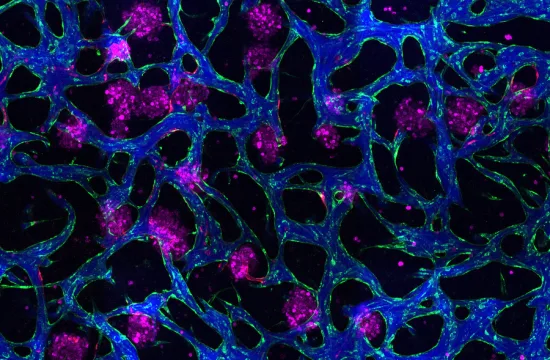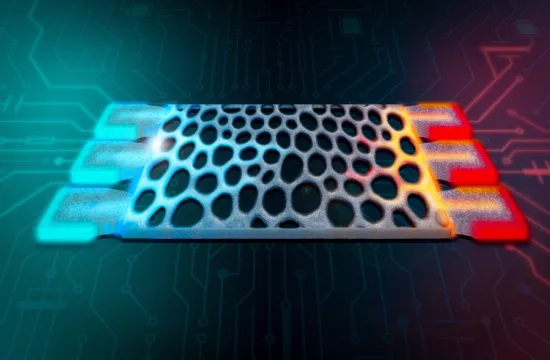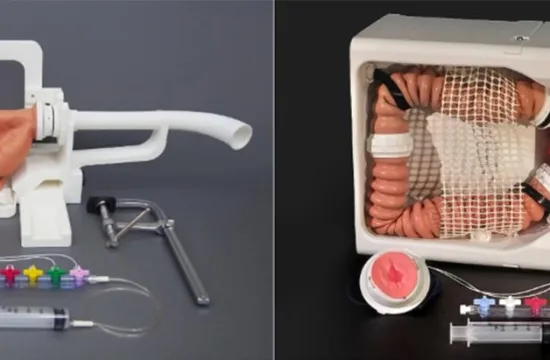IME’s rare cell isolation technology will eliminate risk of pregnancy loss associated with invasive diagnostic testing, paving the way for effective therapy treatments of genetic fetal abnormalities.
 Singapore – A*STAR’s Institute of Microelectronics (IME) and INEX Innovations Exchange (INEX), a local molecular diagnostic company, today announced they are collaborating to develop a non-invasive prenatal diagnostic technology that is as effective as and safer than prevailing prenatal diagnostic procedures. The collaboration will leverage IME’s expertise in microfabrication and INEX’s translational research capabilities in creating products valued by the clinical community.
Singapore – A*STAR’s Institute of Microelectronics (IME) and INEX Innovations Exchange (INEX), a local molecular diagnostic company, today announced they are collaborating to develop a non-invasive prenatal diagnostic technology that is as effective as and safer than prevailing prenatal diagnostic procedures. The collaboration will leverage IME’s expertise in microfabrication and INEX’s translational research capabilities in creating products valued by the clinical community.
Expectant mothers whose prenatal screening results show signs of fetal anomaly are often recommended to undergo prenatal diagnostic tests for a definitive diagnosis of fetal genetic abnormalities, as this allows for early medical treatment of these conditions. However, prevailing diagnostic procedures such as amniocentesis and chorionic villus sampling (CVS), while reliable, are invasive and carry a risk of pregnancy loss of up to approximately 5 per cent[1].
The partnership aims to overcome this risk by leveraging IME’s rare cell isolation technology – a microfluidic chip that contains a microfabricated filter membrane to isolate and enrich fetal cells found in maternal blood.
Cell isolation and enrichment is a process to isolate, identify, and extract target cells such as fetal cells from blood sample, through depleting non-target cells such as red blood cells and platelets. IME’s microfluidic chip enables its microfabricated filter to successfully deplete more than 99.9 per cent of non-target cells out of all the cells in a blood sample and effectively capture fetal cells with high recovery rate of approximately 85 per cent. It is also less likely to cause target cell loss compared to existing methods that separate or remove non-target cells that involve mechanical centrifugation or chemically cell lysis steps. IME’s rare cell isolation technology could also potentially be applied to the prognosis of cancer through the isolation and enrichment of cells shredded from a cancer tumour, also referred as circulating tumour cells.
IME’s technology overcomes the critical challenge of isolating fetal cells known for their rarity[2], to produce high purity sample for clinical downstream molecular analysis of aneuploidies or chromosomal abnormalities, and identification of various genetic disorders. It could also potentially be used from the eighth week of pregnancy, the earliest among all current prenatal diagnostic technologies[3].
Clinicians will only need to draw a few millilitres of blood from an expectant mother to generate results of the health condition of the fetus.
Statistics have shown that without proper prenatal diagnosis and effective fetal treatment therapy, one in 50 babies would be born with serious physical and mental handicap and as many as one in 30 newborns would develop some form of congenital malformation[4].
This diagnostic technology is expected to eliminate the risk of pregnancy loss associated with invasive prenatal testing, and allow effective treatment of genetic fetal abnormalities.
“Over the years, advancements in science and technology have improved surgical fetal therapies that treat prenatally diagnosed abnormalities. As fetal care continues to improve, innovations in prenatal diagnostics, such as effective non-invasive prenatal diagnostic tests that enable early risk assessment, will support doctors in their counsel to patients and better manage fetal conditions”, said Prof. Mahesh Choolani, Senior Consultant at the Department of Obstetrics & Gynaecology of NUH.
Prof. Dim-Lee Kwong, Executive Director of IME, said “It is exciting to see more medical technology companies in Singapore and worldwide working with IME. In IME, particularly our Bioelectronics programme, we work closely with clinicians and position ourselves to develop technologies to fulfill clinical unmet needs. We expect this breakthrough to utilise IME’s core capabilities in medical technology to get a head start in developing rare cell isolation technology to benefit clinicians and patients”.
“As a company focused on women’s and fetal health, we are delighted to collaborate with IME to bring new capabilities to the world to improve women’s health. IME’s rare cell isolation system is simple to use and has the potential to revolutionise the practice of prenatal diagnosis globally. We are confident that the partnership with IME would prove to be an exciting and fruitful journey”, said Ms. Sim Hui Shan, Vice President -Commercial of INEX.






